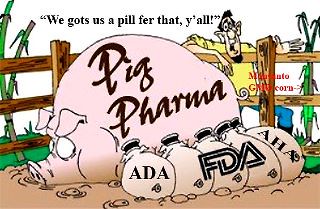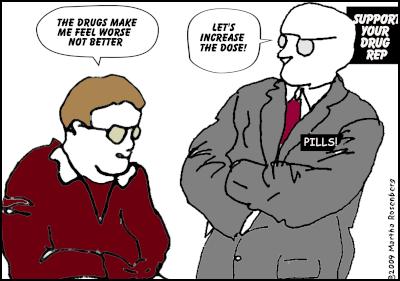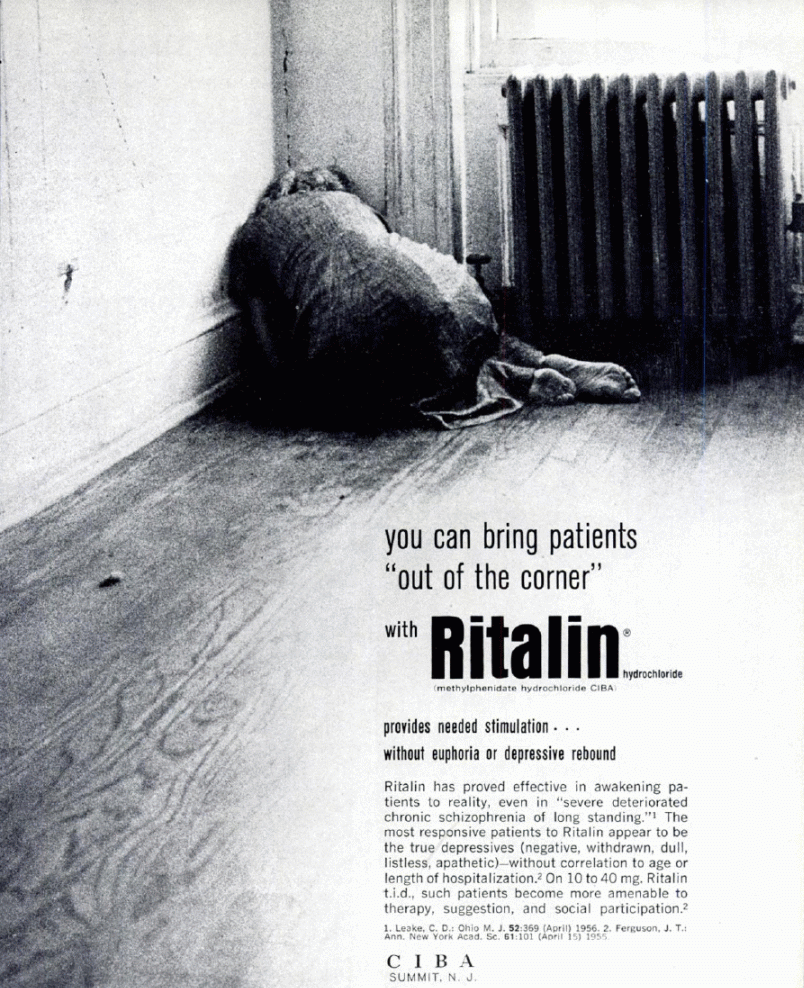"Primum non nocere"
"Declare the past, diagnose the present, foretell the future; practice these acts.
As to diseases, make a habit of two things--to help, or at least to do no harm."
Hippocrates
We have a serious drug problem in this country. Psychiatric drugs are being prescribed to children with behavioral problems caused by social and environmental issues, frequently with ill effect. The drugs are prescribed often in lieu of Evidence Based therapies and supportive services that are known to be effective, instead of as an adjunct to therapy. These drugs are not 'safe,' they have very serious risks including iatrogenic illness, disability and death. Psychiatric drugs are used to treat PTSD in Military Veterans, when
exposure based therapies without fatal risks are known to be more effective, and without fatal risk. Psychiatric drugs are being used to sedate the elderly with dementia, in spite of multiple warnings issued by the FDA that the drugs have an increased risk of fatality for frail elderly with dementia. For the last decade, there has been the out of control prescribing of highly addictive narcotic pain killers. Prescription oxycodone, (Oxycontin) was illegally marketed very successfully. Many are now addicted; significant numbers have died as a result.
According to the New England Journal of Medicine, "users of typical and of atypical antipsy- chotic drugs had a similar, dose-related increased risk of sudden cardiac death."
here It is impossible to know how many children experience life threatening adverse effects, and how many fatalities the drugs cause since this data is not collected; the FDA does not require medical professionals to report adverse events or fatailities caused by FDA approved drugs.
A 2006 article in The Oxford Medical Journal QJM, which is excerpted below, Dr. B.G. Charlton asks the question, Why are doctors still prescribing neuroleptics?
"The Parkinsonian (emotion-blunting and de-motivating) core effect of neuroleptics has been missed by most observers. This failure relates to a blind-spot concerning the nature of Parkinsonism.
"Parkinsonism is not just a motor disorder. Although abnormal movements (and an inability to move) are its most obvious feature, Parkinsonism is also a profoundly ‘psychiatric’ illness in the sense that emotional blunting and consequent demotivation are major subjective aspects. All this is exquisitely described in Oliver Sack's famous book Awakenings, 10 as well as being clinically apparent to the empathic observer.
"Emotional blunting is demotivating because drive comes from the ability subjectively to experience in the here-and-now the anticipated pleasure deriving from cognitively-modelled future accomplishments.2 An emotionally-blunted individual therefore lacks current emotional rewards for planned future activity, including future social interactions, hence ‘cannot be bothered’.
"Demotivation is therefore simply the undesired other side of the coin from the desired therapeutic effect of neuroleptics. Neuroleptic ‘tranquillization’ is precisely this state of indifference.8 The ‘therapeutic’ effect of neuroleptics derives from indifference towards negative stimuli, such as fear-inducing mental contents (such as delusions or hallucinations); while anhedonia and lack of drive are predictable consequences of exactly this same state of indifference in relation to the positive things of life.
"So, Parkinsonism is not a ‘side-effect’ of neuroleptics, neither is it avoidable. Instead, Parkinsonism is the core therapeutic effect of neuroleptics: as reflected in the name, which refers to an agent which ‘seizes’ the nervous system and holds it constant (i.e. indifferent, blunted).4 Demotivation should be regarded as inextricable from the neuroleptic form of tranquillization.2 And the so-called ‘negative symptoms’ of schizophrenia are (in most instances) simply an inevitable consequence of neuroleptic treatment.4 " here
Washington state's medicaid program began monitoring prescriptions of narcotics, antidepressants and other psychotropic drugs to prevent excessive or inappropriate prescriptions and to funnel clients addicted to prescription drugs into treatment, in June of 2005.
here
Washington State developed the Partnership Access Line, 'PAL' which is a consultation service that professionals can call for prescription advice, also developed were the
Primary Care Principles for Child Mental Health which can be accessed online or can be downloaded as a pdf. The section Non-Specific Medications for
Disruptive Behavior and Aggression of this document recommends neuroleptic drugs, specifically, Risperidone (Risperdal) Aripiprazole (Abilify) Quetiapine (Seroquel) Ziprasidone (Geodon) and Olanzapine (Zyprexa) stating, that,
"If used, choosing a single medication is strongly recommended over polypharmacy. Establish a specific target to treat, and measure the response over time (such as anger explosion frequency, duration) Aggression is not a diagnosis—continue to look for and treat what may be the cause, usually prescribing psychotherapy." It then lists other drugs Lithium, Valproate, Carbamazepine, Clonidine, and Guanfacine. After these recommendations, it states,
None of the medications on this page are FDA approved for aggression treatment, with the exception of risperidone (Risperdal) which is approved for irritability/aggression treatment in autism. (emphasis mine)
What this means is there is little to no evidence that quantifies safety, efficacy or effec
tiveness of the drug recommendations; they are based on consensus not medical science. These drugs have serious, debilitating adverse effects. The Practice Parameters for treating schizophrenia in children and adolescents written by Jon McClellan, estimate that 50% of children treated with neuroleptic drugs will develop an iatrogenic, or physician caused, neurological impairment called Tardive Dyskinesia, which is a mostly irreversible neurological disorder of involuntary movements which can be disabling.
It is very troubling that prescriptions for neuroleptics, which are teratogenic neurotoxins, are being recommended so casually for undesirable and maladaptive coping behaviors; particularly since it is also being acknowledged that the behaviors result from environmental conditions. The behaviors are not symptoms of an underlying medical illness or disease. The negative effects from the drugs in the short term are not clearly or completely understood or described in the resources developed to guide professionals; and even less appropriate information is shared with parents or guardians to base an Informed Consent to treatment. What is known is that the drugs have a serious and deleterious impact on multiple physiological processes including cognition; and it is also known that children experience adverse effects more often and more profoundly than adults who take these drugs.
According to a report on Morbidity and Mortality in People with Serious Mental Illness from the National Association of State Mental Health Program Directors (NASMHPD) Medical Directors Council, "It has been known for several years that persons with serious mental illness die younger than the general population. However, recent evidence reveals that the rate of serious morbidity (illness) and mortality (death) in this population has accelerated. In fact, persons with serious mental illness (SMI) are now dying 25 years earlier than the general population." These facts suggest it is not advisable or even ethical to prescribe these drugs 'off-label' to children; or to anyone else. The fact that it is fraud to submit claims for reimbursement for the costs of off-label prescriptions which are not supported by the Drug Compendia used by CMS for authorizing payment of prescription drugs is apparently not considered an issue. It is fraud for the prescriber and the pharmacist who causes such a claim to be filed; and this is obviously not a deterrent.
The reasons for the increased mortality are mainly attributable to the negative effects of the drugs and the iatrogenic illnesses they cause. These illnesses are then medically neglected by the medical providers who cause them.
In a training lecture on psychiatric drugs, Grace Jackson, M.D. reported,
"The Journal of the American Medical Association (aka, JAMA) featured an article by Johns Hopkins University professor, Dr. Barbara Starfield. The article expanded upon the Institute of Medicine’s theme of iatrogenic (treatment-related) death.
"Using data culled from a variety of inpatient and outpatient investigations, Starfield’s analysis estimated that adverse effects of medication (i.e., “therapeutic” doses of prescription drugs taken exactly as prescribed) account for approximately 305,000 deaths per year.
106,000 inpatient deaths due to pharmaceuticals
199,000 outpatient deaths due to pharmaceuticals
"[Note: Given the fact that “adverse drug reactions” are rarely reported, and given
the fact that drug-related heart attacks, strokes, pneumonias, and cancers are
seldom attributed by physicians or governmental agencies to pharmaceuticals,
these estimates were absurdly conservative.]" Grace Jackson, M.D.
here
Jim Gottstein, the founder of
PsychRights, has been a fierce advocate for children who are being harmed by psychotropic drugs and psychiatric diagnoses. He has worked to to stop children from being harmed and to stop the massive amount of Medicaid fraud being committed defrauding the American people. This fraud continues unabated despite multiple convictions against the drug makers and massive fines being levied. It is apparent that the pharmaceutical industry considers these fines and the convictions an inconsequential nuisance; it is abundantly clear the fines and convictions have not served as a deterrent to illegal and corrupt business practices. Jim has written a well thought out and
practical solution which needs to be given serious consideration for the sake of the Nation's children.
The narcotic pain killers were have been illegally marketed and over prescribed to the detriment of patients, and like the neuroleptics, narcotics have caused iatrogenic diseases and death.
via Washington State Wire:
"Washington’s death rate is significantly higher than the national average, it said. In the state’s Medicaid programs, between 2004 and 2007, 1,668 patients died as a result of overdoses, about two-thirds involving methadone.
“These findings highlight the prominence of methadone in prescription opioid-related deaths, and indicate that the Medicaid population is at high risk,” the article said. “Efforts to minimize this risk should focus on assessing the patterns of opioid prescribing to Medicaid enrollees and intervening with Medicaid enrollees who appear to be misusing these drugs.”
here
via The Yakima Herald and The Seattle Times
'Elephant in the room'
In December 2010, Dr. Michael Schiesser, a pain specialist in Bellevue, wrote a letter to the P&T committee, retracing the state's history with methadone and crying foul.
When it comes to methadone, Schiesser is the closest thing the state has to a whistle-blower. Three years ago he joined a Health Department work group on accidental poisonings. After that he became involved in legislative deliberations about pain management.
He reviewed transcripts of P&T committee meetings and swept up reports about methadone. The more research he did, the more troubled he became.
Schiesser uses the word "creep" to describe methadone's grip on Washington. As more years passed with the P&T committee saying the drug was as safe as any other, the harder it became for the state to reverse course or hedge by issuing special alerts to physicians of potential complications with methadone.
"So you start to ignore the elephant in the room, which is the mounting evidence," Schiesser says.
His letter challenged a 2008 report that Oregon Health & Science University provided to the committee, saying it "contains errors, deficient logic, and relevant omissions."
The report said one study "found no differences" between methadone and other drugs for overdose risk, when, in fact, the opposite was true, Schiesser wrote. The report mentioned a "black-box warning" from the FDA about OxyContin but not one from the same agency about methadone, he wrote.
In a written reply, an OHSU doctor downplayed Schiesser's points, saying, for example, that FDA black-box warnings are "not evidence."
To Schiesser, such hyper-selectivity has allowed the state to keep saying there's no evidence of methadone being especially risky -- and to the state, no news is good news. He describes the result as: "Because we don't know, therefore it ain't so."
In Washington, medications can go on and off the Preferred Drug List as more evidence develops. The P&T committee meets later this month, when its members will evaluate -- once again -- the safety of methadone.
* Database reporter Justin Mayo and news researchers David Turim and Gene Balk contributed to this report.
* Michael J. Berens: 206-464-2288 or mberens@seattletimes.com; Ken Armstrong: 206-464-3730 or karmstrong@seattletimes.com here
Since 2004, Yakima County has seen a total of 44 accidental methadone-related deaths. A Seattle Times analysis found statewide deaths occur in low-income areas at a rate three times higher than that of high-income areas. To save money, the state steers its Medicaid patients to methadone.
Learn more of "Methadone and the politics of pain" special section by The Seattle Times
Click on a dot to see the age, sex, occupation and year of death for each decedent.
UPDATE: 6-7-2012 via Seattle Times:
Seattle Times methadone investigation wins Pulitzer Prize
Originally published April 16, 2012 at 1:08 PM | Page modified April 17, 2012 at 6:13 AM
Seattle Times reporters Michael J. Berens and Ken Armstrong won the 2012 Pulitzer Prize in investigative reporting, while Eli Sanders of The Stranger won the Pulitzer in feature writing.
an few excerpts:
"In The Times' three-part series titled "Methadone and the Politics of Pain," Berens and Armstrong revealed that at least
2,173 people died in Washington state between 2003 and 2011 after accidentally overdosing on methadone, which for eight years was one of the state's two preferred painkillers for Medicaid patients and recipients of workers' compensation." (emphasis mine)
"The Pulitzer citation honors Berens and Armstrong for "their investigation of how a little known governmental body in Washington State moved vulnerable patients from safer pain-control medication to methadone, a cheaper but more dangerous drug, coverage that prompted statewide health warnings."
Series brought changes
"The Times series reported that the poor have been hit hardest by the state's reliance on methadone. While Medicaid recipients make up about 8 percent of Washington's adult population, they account for 48 percent of the methadone deaths."
"State health officials had disregarded repeated warnings about methadone's risks, saying it was just as safe as any other painkiller."
"Immediately after the series was published in December, state Medicaid officials sent out an emergency advisory warning of the unique risks of methadone. In January, the state told doctors to use methadone only as a last resort."
"The warnings are likely to have an impact nationally, as Washington state's pain program had been considered a national model." read
here
NOTE:
The discussion of methadone and psychotropic drugs begins on page 86
I read the
transcripts of the Washington State PHARMACY AND THERAPEUTICS COMMITTEE MEETING that took place on February 18, 2009 and was deeply disturbed. The manner in which medical privileges are used is the underlying problem; it is an abuse of prescriptive privileges to prescribe drugs without evidence of safety and effectiveness of the prescription. This abuse of medical privilege is not discussed in meetings about the negative effects of the drugs and fatalities caused as a matter of course, which result from the standards used in clinical practice. Medical professionals have an ethical duty to report treatment providers whose patients are harmed by disabling iatrogenic illnesses, and to speak up on behalf of patients who die. Failure to report to the appropriate authorities in effect and in fact, makes a professional complicit; it is aiding and abetting criminal behavior after the fact. Coaching and advising medical professionals who are disabling and killing their patients is not enough; it allows them to harm other patients, while failing to be accountable for felonious medical assault and homicide. The focus of this committee meeting seemed to be the cost of the drugs, the potential for bad publicity and the fear of being held liable---
It is obvious that Medicaid fraud is not a concern of the Pharmacy and Therapeutics Committee committee. The committee met in February of 2009 and discussed once again, the number of deaths which are attributed to methadone for people on Medicaid. This was a discussion which had been going on for 3 or 4 years, according to the transcript. The policy was not changed until after the number of deaths were publicized in the Seattle Times. The fact that the committee members were aware of the high number of deaths for several years yet failed to act, makes it clear that the best interests of Medicaid patients are not a primary concern of the committee or Washington State's Medicaid program.
"Whenever a doctor cannot do good, he must be kept from doing harm."
Hippocrates












